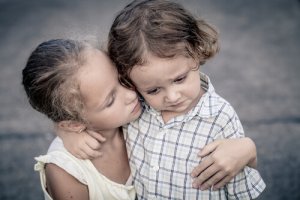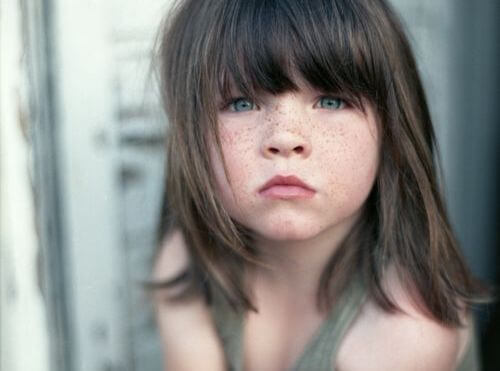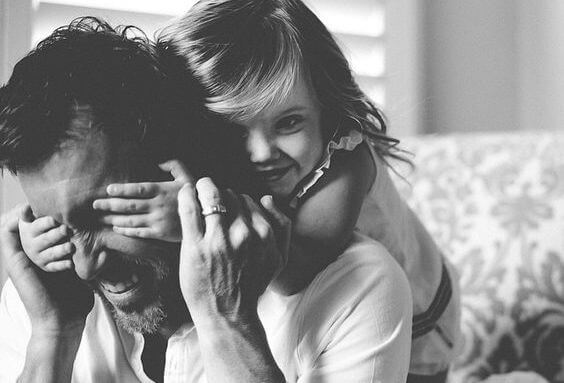A Short Film That Shows How A Child Experiences the Separation of His Parents

When we say “I do” we think it is for life, but the truth is that things can change and, in fact, they do. Going through a separation or divorce is painful, but how does a child experience the separation of their parents? Do we ever think about our children?
Sometimes we are so locked into our sadness, our pain and our problems, that we forget that small beings who do not yet know much about the world, also suffer. What’s worst of all? This difficult time can scar them for the rest of their life.
How a child experiences separation is something that should be given much more importance, something that should be our priority
When children acquire new responsibilities
Separation causes adults to be kids again automatically. We might not act responsibly, we are not aware of what we should or should not do, and we don’t care whether we pretend in front of our children. We get mad, we cry, we have trouble sleeping…
What happens then? Who takes the role of a responsible adult? They are the children who, in the midst of this unstable environment, take on that role that their parents are temporarily unable to fulfill. A responsibility that does not belong to them and that hurts them.
We may think “our children are so strong!” In the worst of times they have been there for us, they have calmed us down, they have listened to us… But in most cases they are just kids!
Do you want to see how a child experiences the separation of their parents? Do you want to know the whole process? We encourage you to watch this short film that clearly represents all of this.
How a child experiences separation matters
While we are immersed in separation, our own pain blinds us from seeing something beyond ourselves. It is because of this that we cannot see with perspective what is really happening with our children.
But what happens after the separation? Everything returns to normal. We parents go back to being “almost” the same and our well-being and calm return. But what about all that responsibility that our children have acquired? Has anyone worried about them? Have we worried about whether they are okay or want to talk?

As adults, it is not the first time we think that since they are children they don’t understand emotions or how the world works. But we couldn’t be more wrong. This is something we tell ourselves so we don’t have to face the difficult situation of explaining to the children how things are and what happens.
Underestimating children, our own children, does not benefit them. They will grow up with the firm belief that people only think about themselves, that they are selfish, and that in situations of pain no one else matters except them.
Emotional attachment, one of the great consequences
The fact that our children acquire the role of “caretaker” when that role should belong to us as parents causes significant emotional attachment. The child must care for their parents, something that should happen in reverse. The roles are exchanged and emotional attachment appears.
But, emotional attachment is generated just by a change of roles? No, the change of roles goes far beyond that. Children are mediators that try to help us get along better and urge us to calm down our temper in arguments. Children feel fear. Children need us and we need them.

They experience loss as an absolute and painful breakup. A situation in which they have an important role, as they have the responsibility to make everything go in the best way. They talk to dad or mom, they have to listen to how they speak bad about one another (in some cases) and soothe their crying.
“When they fight over me or put me in the middle of an argument, to me they are sending the message that winning between you two is more important than my life”
For all this, it is important that we pay attention to our children because, although we do not want to see it, they suffer from living in a situation of mixed and confusing emotions. No one comforts them, they’re the ones who provide that comfort!
The way in which a child experiences the separation of their parents is something we should never ignore.
When we say “I do” we think it is for life, but the truth is that things can change and, in fact, they do. Going through a separation or divorce is painful, but how does a child experience the separation of their parents? Do we ever think about our children?
Sometimes we are so locked into our sadness, our pain and our problems, that we forget that small beings who do not yet know much about the world, also suffer. What’s worst of all? This difficult time can scar them for the rest of their life.
How a child experiences separation is something that should be given much more importance, something that should be our priority
When children acquire new responsibilities
Separation causes adults to be kids again automatically. We might not act responsibly, we are not aware of what we should or should not do, and we don’t care whether we pretend in front of our children. We get mad, we cry, we have trouble sleeping…
What happens then? Who takes the role of a responsible adult? They are the children who, in the midst of this unstable environment, take on that role that their parents are temporarily unable to fulfill. A responsibility that does not belong to them and that hurts them.
We may think “our children are so strong!” In the worst of times they have been there for us, they have calmed us down, they have listened to us… But in most cases they are just kids!
Do you want to see how a child experiences the separation of their parents? Do you want to know the whole process? We encourage you to watch this short film that clearly represents all of this.
How a child experiences separation matters
While we are immersed in separation, our own pain blinds us from seeing something beyond ourselves. It is because of this that we cannot see with perspective what is really happening with our children.
But what happens after the separation? Everything returns to normal. We parents go back to being “almost” the same and our well-being and calm return. But what about all that responsibility that our children have acquired? Has anyone worried about them? Have we worried about whether they are okay or want to talk?

As adults, it is not the first time we think that since they are children they don’t understand emotions or how the world works. But we couldn’t be more wrong. This is something we tell ourselves so we don’t have to face the difficult situation of explaining to the children how things are and what happens.
Underestimating children, our own children, does not benefit them. They will grow up with the firm belief that people only think about themselves, that they are selfish, and that in situations of pain no one else matters except them.
Emotional attachment, one of the great consequences
The fact that our children acquire the role of “caretaker” when that role should belong to us as parents causes significant emotional attachment. The child must care for their parents, something that should happen in reverse. The roles are exchanged and emotional attachment appears.
But, emotional attachment is generated just by a change of roles? No, the change of roles goes far beyond that. Children are mediators that try to help us get along better and urge us to calm down our temper in arguments. Children feel fear. Children need us and we need them.

They experience loss as an absolute and painful breakup. A situation in which they have an important role, as they have the responsibility to make everything go in the best way. They talk to dad or mom, they have to listen to how they speak bad about one another (in some cases) and soothe their crying.
“When they fight over me or put me in the middle of an argument, to me they are sending the message that winning between you two is more important than my life”
For all this, it is important that we pay attention to our children because, although we do not want to see it, they suffer from living in a situation of mixed and confusing emotions. No one comforts them, they’re the ones who provide that comfort!
The way in which a child experiences the separation of their parents is something we should never ignore.
This text is provided for informational purposes only and does not replace consultation with a professional. If in doubt, consult your specialist.







